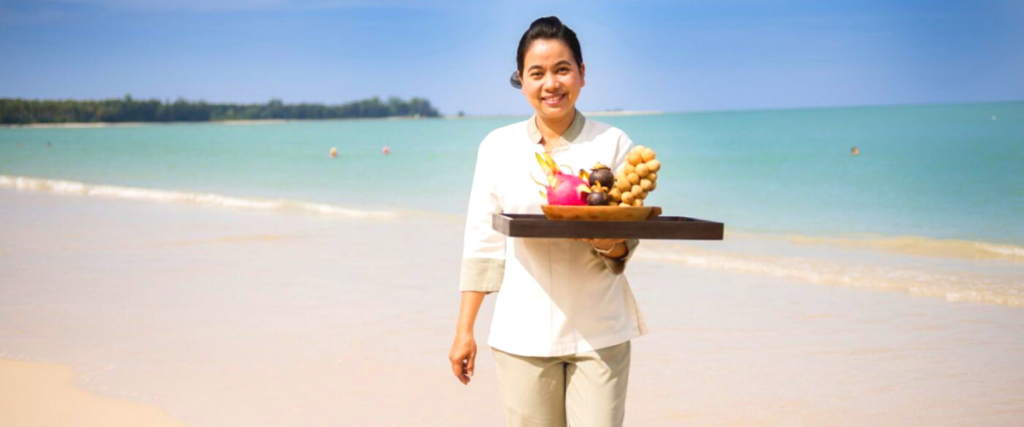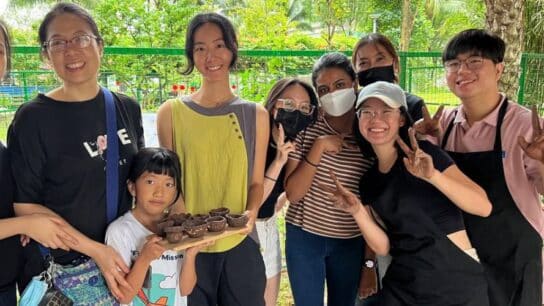Are you planning your next vacation and looking for eco-friendly alternatives? Check out our guide to the top eco hotels in Thailand for a validating and environmentally responsible stay.
Thailand is known for the exotic experience it offers, filled with mesmerising beaches, the best local delicacies, and breathtaking nature. The year-round summer makes it the perfect home for luscious nature and ecological wonders. Hence, access to organic natural sources allows for plenty of sustainable alternatives.
While the country’s beautiful nature promotes tourism and are used as attractions, we must play our part to conserve them; it is vital to keep in mind that such resources are not limited, and ecotourism could save such locations from negative externalities of heavy commercialism.
If you are planning a trip to Thailand, read on to learn about the top eco hotels that will help you make a positive impact on the environment. Reduce your carbon footprint, and support local communities during your visit.
The Sarojin
Situated north of Phuket amidst a luscious forest park, The Sarojin is surrounded by ample green life. The Sarojin has previously been recognised for its efforts to support the local community and nature. Placing as a runner up for Community-Based Tourism, it was acclaimed for its sustainable practices at the 2015 Thai Green Excellence Awards. This outstanding achievement highlighted the company’s commitment to its Sarojin Khao Lak Community Fund. The Community Fund project aims to help out the local region by making significant contributions to its surroundings. Through the fund, The Sarojin works with orphanages, animal welfare societies, and local construction projects to conserve, improve, and cherish the beautiful land it calls home.
While actively participating in sustainable development, The Sarojin does not fall behind in delivering a top tier experience. The eco hotel takes pride in the luxurious sense of escape it offers. With spacious and beautifully decorated rooms, there are even floating pavilions above an infinity pool, if you feel like cooling off. Another notable feature is its dining experience where you can enjoy authentic Thai cuisine, or even book a private table for two, where you can enjoy a dinner by the beach next to the calming waves.
Bangkok Treehouse
Right at the heart of Thailand, Bangkok Treehouse is a paradise getaway in the middle of the capital. It is rather popular among travellers for its convenient location, situated near the floating market, right on the banks of Chao Phraya River. As much as it is surrounded by many communities, The accommodation focuses on preserving its environment by following its thorough and strict sustainable plan, which outlines activities and products that adhere to ecotourism and preservation standards. The hotel commits to using renewable energy powered light, organic produce grown on-site, carbon-free cooking, and even participating in river clean-ups and upcycling habits. A unique way the Bangkok Treehouse urges its customers to also be environmentally aware, is through allowing access to the hotel only by foot, bike, or a boat to reduce air contamination.

The Hideout
On a small, quiet island located on the lower west coast of Thailand, Phang Nga Bay is where The Hideout stands. Phang Nga Bay is an island right in the middle of glamorous Phuket on its west and bustling Krabi to its east. It is supplied with a handful of unique resorts, hotels, and guest houses run by the local community.
The Hideout is recognised for its one-of-a-kind open-air treehouse inspired suites and has an infinity pool filled with saltwater filtered with solar power. All structures at The Hideout are built using natural recycled materials that are locally sourced. In addition, the hotel has a strictly electric-free operating system. The exception to this regulation are the solar panels powering the infinity pool and emergency alarms and lighting. The open-air design of treehouses allows for natural ventilation from island breezes throughout the day, and sufficient inflow of sunlight to get you feeling rejuvenated.
When planning to stay at The Hideout, leave your toiletries at home. The Hideout supplies you with in-house produced biodegradable toiletries, preventing contamination to Thailand’s clear waters.

Soneva Kiri
Soneva Kiri is located on Koh Kood island, the fourth-largest island of Thailand. It is one of the most precious islands as it still has preserved tropical life. Home to some of Thailand’s most breathtaking beaches, Koh Kood is definitely an island to unwind on.
Soneva Kiri is a large-scale jungle inspired resort that covers the entire northwestern part of the island. The beach is accessible to all villas, so you have the freedom to step out of your sustainably harvested timber veranda onto your own personal sandy oasis. The resort provides a diverse range of environmental activities for visitors to keep busy with, and raises awareness of eco-sustainability. With most of their water activities being non-motorised, you also have the option to leave an impact by taking a tour of the Eco-Centro Waste-to-Wealth Centre and organic gardens.
Aside from their sustainability activities available, Soneva Kiri strives to reduce their carbon footprint. They have also launched coral restoration projects dedicated to preserving the local marine environment. It has also banned using imported bottled water. With such efforts, marine life currently flourishes around the Soneva Kiri.

Six Senses Samui
Koh Samui is a hot spot for young tourists. As much as it has a large capacity of tourism throughout the year, it requires more attention through ecotourism habits. Six Senses Samui is an eco-hotel that prioritises the wellbeing of the local environment and communities. It is internationally recognised for its green credentials, and encourages guests to play their part in reducing their carbon footprint during their stay. One of the major ways this is done is through the policy of producing their own bottled water on site.
Six Senses Samui invited guests to participate in Farm on the Hill, the latest sustainable movement converting waste into valuable products through the process of composting and recycling. There is a local farm where vegetables, fruits, eggs, and herbs are grown organically, and guests can participate in feeding local farm animals, or harvesting produce. The hotel’s other noteworthy sustainable projects include making bio-charcoal and bio-diesel for the hotel’s use, and recycling water.

Related Articles:
Energia: The Bangkok Startup Growing the World’s Next Sustainable Superfood
Marine Discovery Centres in Thailand Help Save Sharks
Meet the Thai Engineer Who Upcycles 100,000 Flip Flops from Ocean Debris






